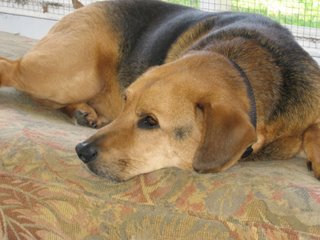Just now, first hand reports of the junta's brutal crackdown are emerging out of Burma. These first-hand accounts describe a campaign hidden from view, but even more sinister and terrifying than the open crackdown in which the regime's soldiers turned their bullets and batons on unarmed demonstrators in the streets of Rangoon.
The hidden crackdown is as methodical as it is brutal. First the monks were targeted, then the thousands of ordinary Burmese who joined the demonstrations, those who even applauded or watched, or those merely suspected of anti-government sympathies.
"There were about 400 of us in one room. No toilets, no buckets, no water for washing. No beds, no blankets, no soap. Nothing," said a 24-year-old monk. "The room was too small for everyone to lie down at once. We took it in turns to sleep. Every night at 8 o'clock we were given a small bowl of rice and a cup of water. But after a few days many of us just couldn't eat. The smell was so bad."Some of the novice monks were under 10 years old, the youngest was just seven. They were stripped of their robes and given prison sarongs. Some were beaten, leaving open, untreated wounds, but no doctors came."
A young woman described how one woman bystander who applauded the monks was rounded up. "My friend was taken away for clapping during the demonstrations. She had not marched. She came out of her house as the marchers went by and, for perhaps 30 seconds, smiled and clapped as the monks chanted. Her face was recorded on a military intelligence camera. She was taken and beaten. Now she is so scared she won't even leave her room to come and talk to me, to anyone."
Another added, "We all hear screams at night as they [the police] arrive to drag off a neighbour. We are torn between going to help them and hiding behind our doors. We hide behind our doors. We are ashamed. We are frightened."
In Rangoon, people say they are more frightened now than when soldiers were shooting on the streets. "When there were demonstrations and soldiers on the streets, the world was watching, But now the soldiers only come at night. They take anyone they can identify from their videos. People who clapped, who offered water to the monks, who knelt and prayed as they passed. People who happened to turn and watch as they passed by and their faces were caught on film. It is now we are most fearful. It is now we need the world to help us."
The scale of the crackdown remains undocumented. The regime has banned journalists from entering Burma and has blocked internet access and phone lines. They have also arrested the owners of computers which they suspect were used to transmit images and testimonies out of the country. For each story smuggled out, someone has risked arrest and imprisonment.
Edited from the Independent, UK
Oct 11, 2007
Subscribe to:
Post Comments (Atom)







1 comment:
Bless you for talking on this subject. Keep going!
Post a Comment